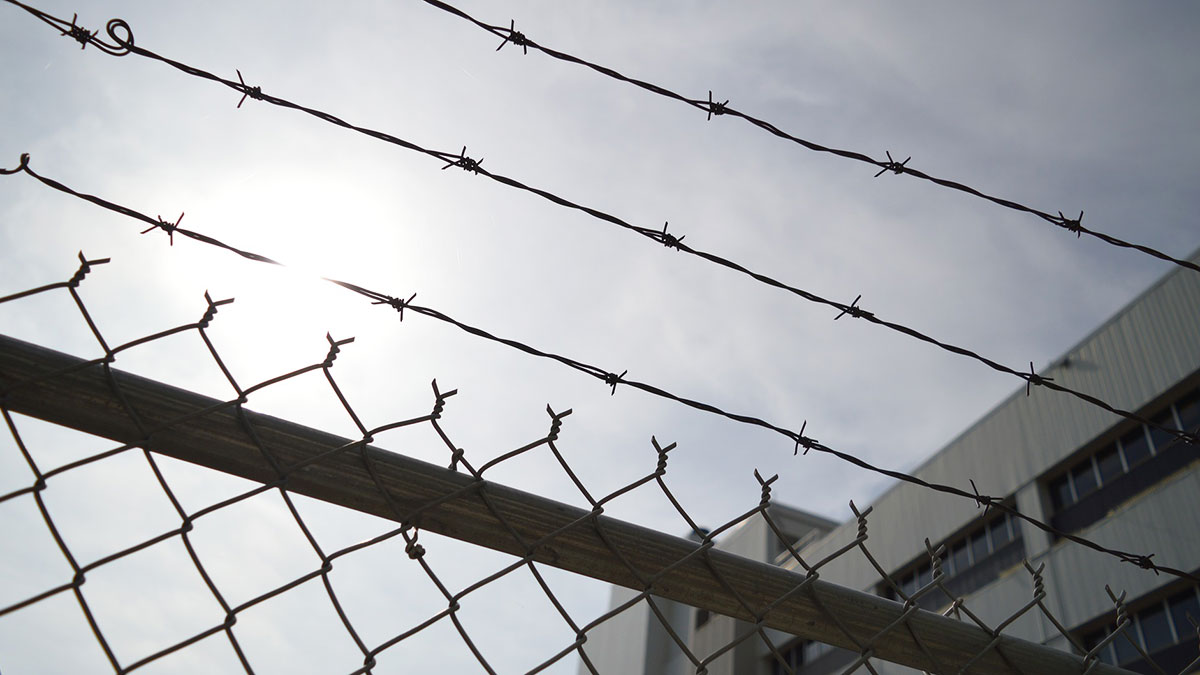 Supplied
SuppliedInmates at the Regina Correctional Centre are eating again, after approximately 160 of the 604 inmates housed there refused trays of food last Thursday. This is the second time that inmates have refused food since the centre switched to a private food service provider in November. The first time was mid-December, when the eggs at breakfast were claimed to be undercooked.
Saskatchewan’s premier, Brad Wall, took this opportunity to deliver one of the snappy, delusional, over-simplifications he’s recently regained popularity for. When asked for comment, Wall demonstrated a gross willful ignorance of the realities of the prison industrial system, replying, “if you really don’t like the prison food, there’s one way to avoid it, and that is, don’t go to prison.”
Given the premier’s recent history of public statements, this shouldn’t come as a huge surprise. Wall spent a busy 2015 pandering to a voter base that values the status quo and fears change by making lukewarm statements on everything from climate change to the Syrian refugee crisis, branded as the unpopular opinions that everyone else are too afraid to voice. In this most recent case, Wall shows that this issue reaches beyond what’s being served for breakfast. It demands a longer look at how the criminal justice system works, and for whom, to see if “don’t go to prison” is such easy advice to follow.
The carceral system in its current state is a means of controlling popular behaviour through a larger system of institutions (including schools, churches, even hospitals), which create what Michel Foucault refers to in Discipline and Punish as ‘docile bodies’. This same disciplinary system that creates docile subjects also creates delinquency, and while in Foucault’s case the delinquent class was the proletariat where the bourgeoisie were politically dominant, prisons today are still deeply embroiled in class and race relations.
In Canada, the ‘delinquent class’ is usually poor, and usually Aboriginal, with prisons disproportionately inhabited by Indigenous people, and people living in poverty. Saskatchewan’s own dark past of racialized police violence is barely in the rearview mirror, with inquiries into starlight tours as recent as the early 2000s.
That said, even ignoring the many problems with imprisonment as a form of punishment, and assuming that the carceral system works fairly, giving every person an equal shot at success, the question remains of what prisons are meant to achieve. The name, Regina Correctional Centre, might lead one to believe that the institution’s goal is to correct criminal behaviour, and to rehabilitate so that inmates may eventually reintegrate into society as contributing, law-abiding citizens. If that’s the goal, inmates need access to nutritious meals, and if there’s widespread concern that that need isn’t being met, it should be engaged with in a productive way. Instead, Wall has been criticized for ignoring health concerns in order to save money and pursue privatization.
The question of whether the Regina Correctional Centre really is trying to rehabilitate prisoners was also raised in June, when multiple former inmates reported 21-hour a day confinement while on remand, with little or no access to the outdoors, which lasted for years in some cases. With the toll that kind of confinement takes on inmates’ both mental and physical health, it’s hard to imagine that the priority is creating better citizens. On the contrary, it creates individuals who leave prison without the tools necessary to succeed outside, and who are angry and resentful at a system that failed them.
I’d be interested in knowing whether Mr. Wall thinks that prisons are first for containing or for correcting criminals, but I don’t suspect either answer would stir up much voter support, so I’m quite sure he doesn’t want to talk about it.




